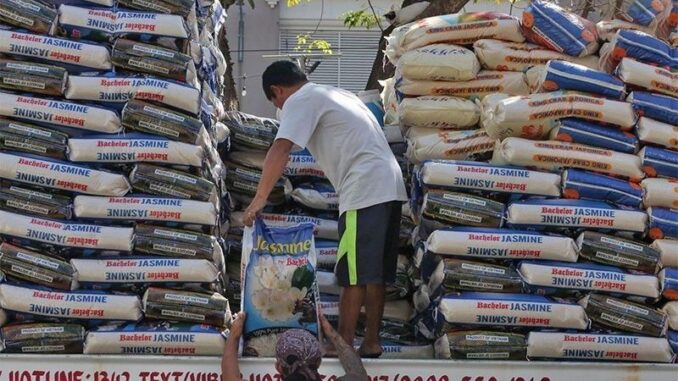
MANILA, Philippines — Agriculture Secretary Francisco Tiu Laurel Jr. yesterday moved the expected full impact of Executive Order (EO) 62 on lower tariff on imported rice to January 2025 from October 2024.
“Since demand for food usually spikes in December, we anticipate seeing a more substantial drop in rice prices by January,” he said.
He assured the public that the benefits of EO 62 will be felt starting October 2024 as the importers still have many stocks in the warehouses before the effectivity of the EO on July 7.
Economic managers have vowed that EO 62 will result in a P7 per kilo drop in the cost of rice.
EO 62 lowers the tariff on imported rice from the previous rate of 35 percent to 15 percent.
Tiu Laurel explained that the expected decline in rice prices has not yet fully materialized because traders ramped up rice imports in anticipation of a supply shortage caused by El Niño.
He said between December 2023 to May 2024, rice importation averaged 422,000 metric tons per month, exceeding consumption by 102,000 MT per month.
This resulted in an excess of approximately 612,000 MT of imported rice at the higher 35 percent tariff, enough to cover nearly two months of consumption, he said.
He added that prior to the tariff reduction, rice imports decreased to around 176,000 MT per month in June and July.
“It wasn’t until August that we saw a significant increase in import volumes to 385,000 metric tons,” Tiu Laurel said.
He revealed that the soaring global price of rice has pressured traders to purchase palay from local farmers at elevated prices of up to P30 per kilo.
“With current palay prices now ranging between P23 and P25 per kilo, a similar reduction in rice prices in the market could be forthcoming. Given the wet season, some areas are seeing palay being bought at P16 to P17 per kilo. We need to monitor this closely to ensure farmers are not shortchanged,” he added.
He explained that global rice prices remain high due to robust demand from Malaysia and Indonesia, which has been exacerbated by Thailand and Vietnam’s attempts to push prices higher.
“Fortunately, Myanmar has reduced their prices, which has somewhat eased the pressure on rice prices,” he said.
Tiu Laurel said with India yet to lift restrictions imposed last year on the export of non-basmati white rice, parboiled rice and broken rice, chances of a significant reduction in global rice prices are low.





Be the first to comment